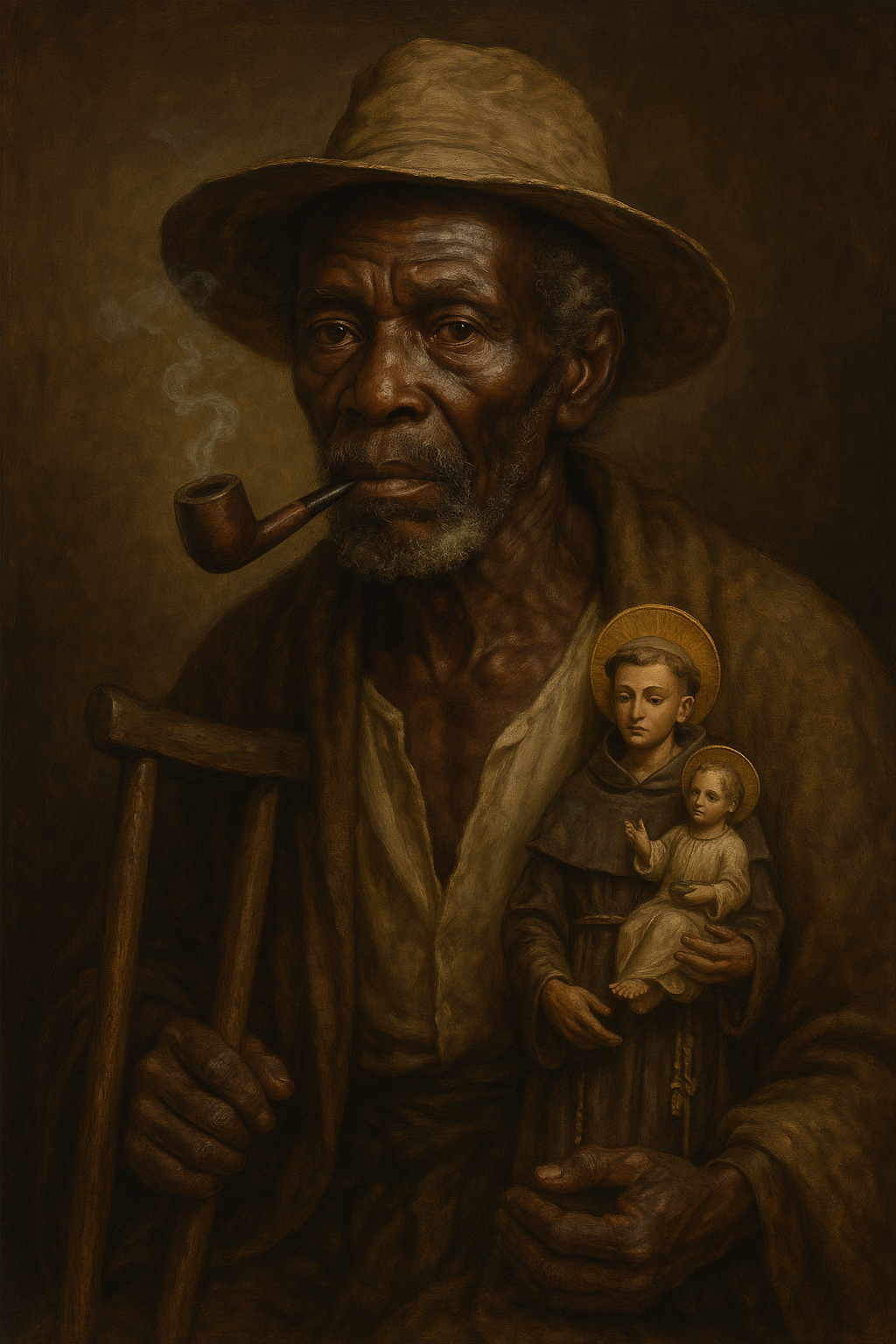
Papa Legba in the 21 Divisions: The Gatekeeper of the Mysteries
Who Is Papa Legba in the 21 Divisions?
In Dominican spiritual traditions—especially within the 21 Divisions—Papa Legba holds a vital and sacred position as the gatekeeper of the Mysteries. Whether you're new to the practice or deepening your understanding of this powerful lwa, Papa Legba is the first spirit you must call upon in ceremony. He is not only the opener of gates but a protector of children, a master communicator, and a symbol of divine charity.
Who Is Papa Legba in the 21 Divisions?Understanding Legba’s role from the Dominican perspective allows for a deeper grasp of Afro-Caribbean spiritual frameworks beyond popular Haitian portrayals. Let's explore the true essence of Papa Legba in the 21 Divisions—his symbols, offerings, feast days, and sacred responsibilities.
Offerings for Papa Legba
One of the most important ways to honor Papa Legba is through his offerings, which vary slightly by region but maintain consistent themes:
- Water-Based Hot Chocolate – Traditionally Dominican, sometimes infused with ginger
- Bread or Cassava (Kasab) – Symbolizing sustenance and simplicity
- Roasted Corn & Peanuts (Maní) – Called “ou mani,” representing grounded abundance
- Smoked Herring & Sweet Potato (Batata Asada) – Shared offerings among several Lwa
- Rum (Preferably Dark) – A key component, often poured on the ground or left on his altar
- Pipe and Tobacco – Essential. While he can smoke a cigar, Legba prefers a pipe
- Straw Bag (Makout) – Where Legba stores tools, gifts, or tokens of charity
How Papa Legba Appears in Ceremony
Legba is often visualized as an older man using crutches or a cane. In some traditions, particularly in the southern regions of Haiti and parts of the Dominican Republic, he is syncretized with Saint Lazarus, further symbolizing age and infirmity. However, he can also appear as a child—referred to as T-Legba or Legbecito—representing innocence, mischief, and spiritual duality.
In ceremony, Legba’s arrival is marked by song, drumming, and offerings. He may move slowly or even crawl, reflecting his age. His personality can range from wise and solemn to playful and tricky, reminding us of the complexity of spiritual wisdom.
The Charitable Nature of Legba
Papa Legba is deeply associated with generosity. Those who serve him are often encouraged to give freely to the poor, especially the elderly and children. His altar is not just a site of power—it is a symbol of giving. His feast days often involve public celebrations where food is distributed to the community.
As the song goes:
“If you’re going to give charity to someone, give it to Papa Legba—because he needs it.”
This is a sacred reminder: the beggar at your gate may be Legba in disguise.
Frequently Asked Questions
What day should I serve Papa Legba?
Depending on lineage, Legba may be served on Monday, Tuesday, or Thursday—often aligned with other spirits like Metresili or Anaisa. June 13th is his official feast day.
Is Papa Legba the same in Haiti and the Dominican Republic?
No. While there are similarities, Dominican 21 Divisions portray him more often as Saint Anthony, with specific regional songs, rituals, and altar styles distinct from Haitian Vodou.
Can Papa Legba appear as a child?
Yes. T-Legba or Legbecito is a younger form of Papa Legba, often honored during children's ceremonies alongside the Marassa (Divine Twins).
What is the significance of the pipe?
The pipe is Legba’s sacred symbol of wisdom and presence. When he mounts a horse (possesses a person), smoking his pipe signals his arrival and comfort in the space.
Why is charity so important when working with Legba?
Legba represents thresholds—both physical and spiritual. Giving to the needy honors his role as guardian of roads, reminding us that no one should be left behind.
Are you ready to build a deeper relationship with Papa Legba and the Lwa of the 21 Divisions? Whether you're beginning your spiritual journey or expanding your practice, Ejiogbe Institute offers private consultations, educational sessions, and altar setups tailored to your path.
👉 Book a session or explore spiritual services now at ejiogbeinstitute.com
Let Papa Legba open the gate to your transformation.
